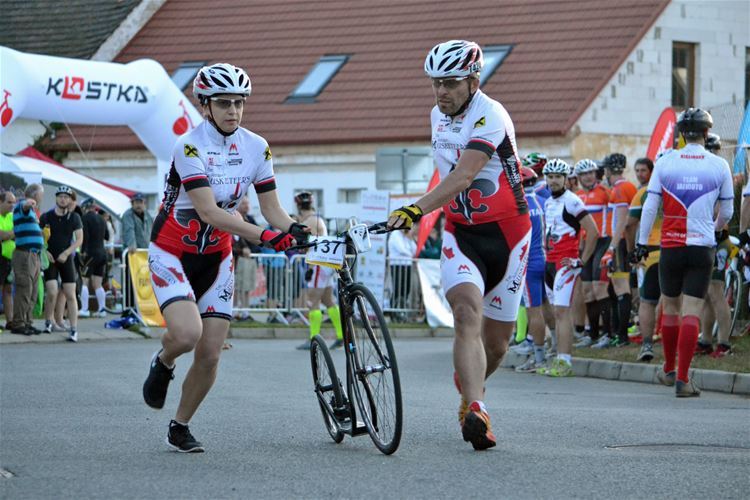The Czechs Dominate The World Of Footbiking
| Vendula KosíkováThe first world championship in the history of footbiking took place in 2004 in Pilsen. This year it has been held in the Czech Republic after ten years. Czech scooter lovers thus had the unique opportunity to see the world’s top scooter riders in action. A total of 200 competitors from 12 countries, including overseas riders from Australia, USA, Canada or Colombia arrived in the West Bohemian metropolis and the nearby Town of Touškov the last weekend of August.
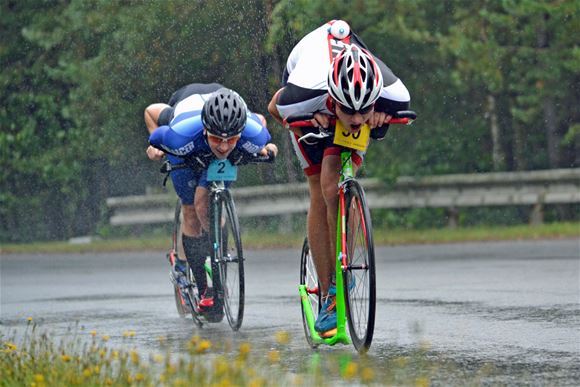
“Much has changed since the championship took place for the first time; the number of competitors has increased and the races have been attracting more and more fans,” says Petr Pešta, chairman of the organising committee of the Footbike World Championship 2014. Nevertheless, the racers’ enthusiasm and their willingness to travel thousands of kilometres with no hope of reward persisted. Although the competitors put maximum effort into the racing and did their best on the route, often with a risk of a crash, after the race they enjoyed meeting people with similar interests in a very friendly atmosphere. “Footbiking, so far not affected by money, is still full of sporting spirit,” Petr Pešta gives his view.
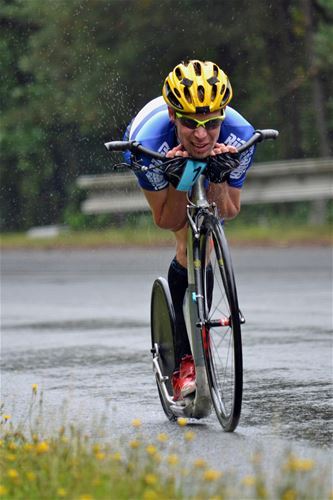


Three scooter superpowers – the Netherlanders, the Finns and the Czechs – won the medals at the World Championship. While the Netherlanders dominated the women’s races, it was mainly the Czech male competitors who scored success in the men’s category. They entirely dominated the royal discipline, in which they succeeded in defeating the legendary four-time world champion from Finland, Alpo Kuusisto. The renowned Finnish racer and holder of multiple records did not manage to beat the three Czech representatives this year. Michal Kulka managed to win gold in the 36 kilometre-long race. Tomáš Pelc won the silver medal and young standount rider Marek Kadlec from Pilsner received the bronze medal. The Czechs also won gold in the team relay.
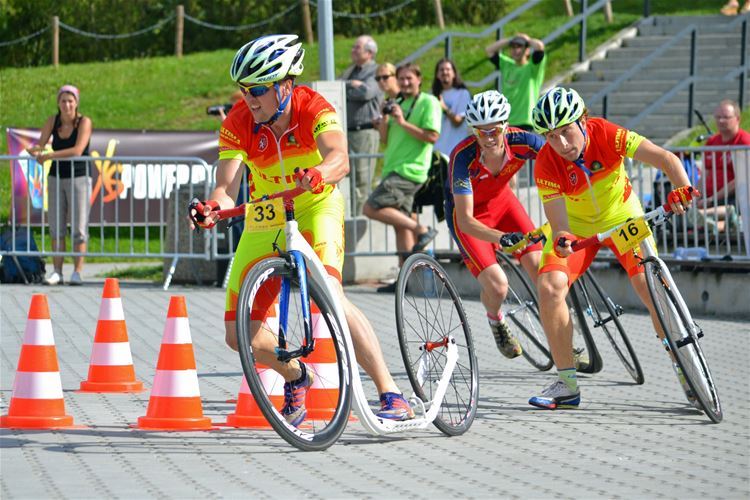
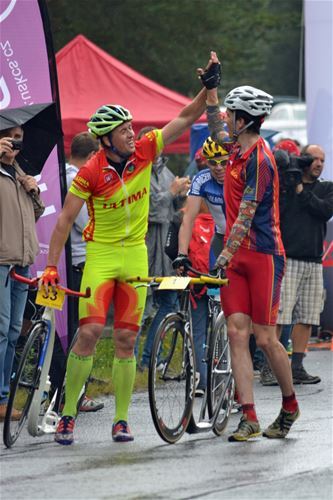
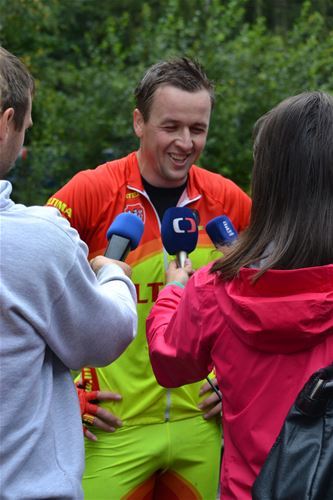
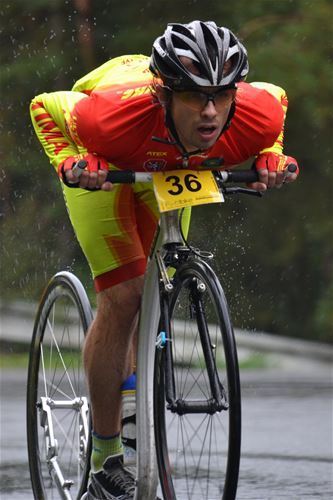
It was Petra Koblížková who qualified for the championship on behalf of the Yedoo team, and placed ninth in the Friday’s 8.7 kilometre-long race. “One does not have to have a long-term sporting career of a professional to be able to practise this type of sporting activity. It is just about having natural talent for sports and about regular exercising. What’s more, a friendly atmosphere surrounds the scooter races. This was the very first championship I have ever taken part in. I enjoyed it a lot.” Petra recalls the weekend competition.
Scooter Makes You Happy
Two races intended for the general public entitled “Scooter Makes You Happy” formed part of the sixth annual Footbike World Championship. On Friday more than 60 amateur racers ranging from children to elderly persons took advantage of the unique opportunity to experience the atmosphere of the World Championship. About 50 riders took part in the 1.200 metre-long race on Saturday, among them also Kuba Bostl, who managed to win bronze medal on his vehicle called “Cheese” that he had constructed himself. “I compete because it makes me happy and because of the audience. I look forward to participating in the next championship in Australia in two years,” says Yedoo chief constructor with a smile on his face.
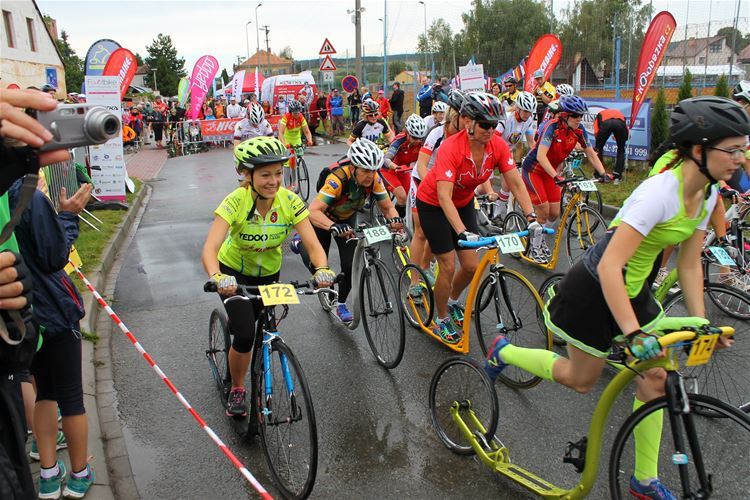
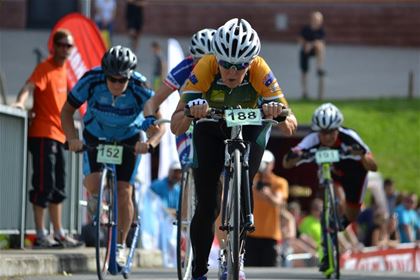
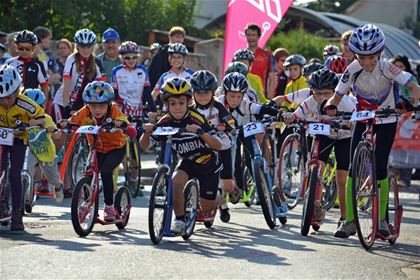
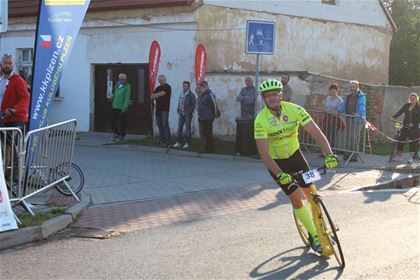
Did you know
- that the Czech Republic is the heart of the world of footbiking? The very first European championship took place in the Czech Republic in 2002 and the first world championship was held there two years later. The international scooter association IKSA (International Kicksled and Scooter Association) was also established there. It comes as no surprise that the three scooter superpowers - the Netherland, Finland and the Czech Republic – were the founding countries of the Association.
- The three largest scooter producers, namely Yedoo, Kostka and Kickbike, joined forces to support this year’s World Championship.
Various vehicles could be seen on the routes, ranging from large scooters to those with 12“ wheels. There are no limitations as to the construction of the scooters participating in the world championship; the only condition is that only human-powered scooters are allowed to enter the race. Nevertheless, in accordance with the current trend, competitors usually buy scooters with light carbon components and large 28“ front and rear wheels. Such vehicles usually ride faster than the speed of thirty kilometres per hour, and they are even faster than a bicycle when riding downhill.
The audience also enjoyed themselves during the weekend break; they had the opportunity to see incredibly fast rides, which were made even more dramatic by minor crashes and falls. “The World Championship, although it poured with raindrops from time to time, was very successful as far as its organization and the sporting activities are concerned,” Petr Pešta assesses the event and adds the following: “We believe that the World Championship was a unique and inspirational invitation to another year or other years of footbiking.”



